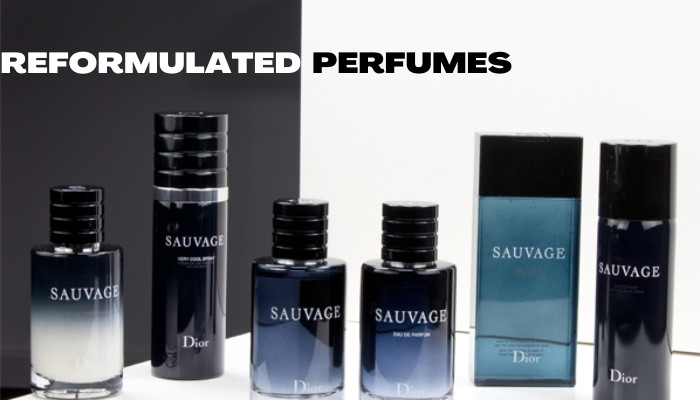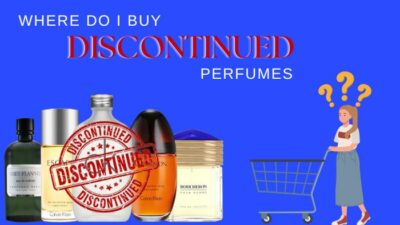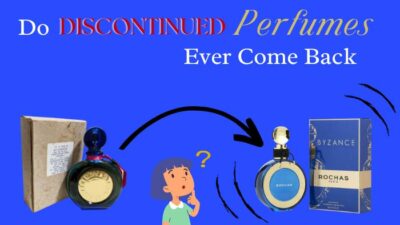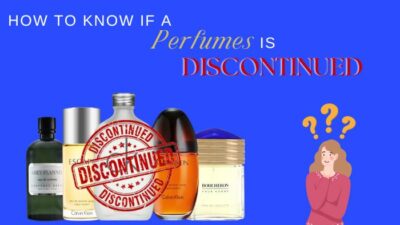Has it ever happened that you bought a bottle of your favorite fragrance only to discover that it smells very different from what you remembered?
If yes, then chances are that perfume has been reformulated.
To know more about why perfumes are reformulated, let me guide you through what it actually means and how reformulation affects the perfume.
![Why Do Fragrances Get Reformulated? [All Reasons Explained]](https://10fragrances.com/wp-content/uploads/Nazia-01-4-1.jpg)
Why Do Fragrances Get Reformulated?
Fragrances are reformulated for a variety of reasons, such as a shortage or higher prices of the used ingredients, to reduce production costs, to comply with new legislation, or for the desire to appeal to a larger and newer audience. But reformulation doesn’t necessarily result in a bad outcome.
Follow our guide to know- Do Perfume Testers Last Longer?
What Is Perfume Reformulation?
Perfume reformulation is when any ingredients, notes, or concentrations in the original product are changed. Since the unique blend of these individual ingredients is responsible for the unique fragrance of the perfume, companies reformulate them when it is absolutely necessary.
Once a company decides to reformulate a specific perfume, it is a very risky game. Since the final mix of the ingredients determines the ultimate fragrance, any minor change in the ingredients or their concentration can result in a different scent altogether.
Upon reformulation, the aroma of the perfume usually remains the same as the original. However, sometimes the aroma changes or the scent gets weaker.
Moreover, even if the reformulation does not modify the aroma of the fragrance, it can sometimes affect the projection or the longevity of the fragrance on the skin.
You can follow our guide to know Why Do Fragrances Get Discontinued?
The fate of the perfume then depends solely on how well the audience receives the modified fragrance.
Sometimes the fanbase enjoys the changes, and sometimes they are disappointed by it! The scenario may pan out in many ways.
If the fragrance remains the same, the audience remains satisfied with the perfume.
If the fragrance has slight changes, it may result in newer customers liking the scent, whereas the older customers may be disappointed with the change.
If the fragrance has changed significantly, some may find it to be an improvement from the previous aroma, while those who loved the original fragrance would be upset by the change.
If the fragrance changes drastically, and not in a good way, the entire fanbase would be disappointed and stop buying it. Moreover, newer customers would also not take a liking to the fragrance, so it would not sell.
Why Do Companies Reformulate Their Popular Fragrances?

You may ask as to why any company would reformulate their hit and successful fragrance?
Well, there may be many reasons behind this, and I’ll be guiding you through some of the most common reasons for perfume reformulation in detail.
Reducing Costs:
One reason behind reformulating a perfume can be cutting the production costs of the perfume. The fragrance house may reduce the concentration of scent in a perfume or replace pricey components with less expensive ones.
This is not a common practice since it often results in an altered aroma of the perfume. It is most commonly done when the business acquisition takes place, and the buyers reformulate the perfumes because their primary concern is boosting profits and lowering production costs.
Looking for something different? Then check out our guide on Why Does Perfume Change Color?
Shortage Of Natural Ingredients:
One of the primary reasons behind the reformulation of perfumes is the shortage of natural ingredients that were used to make the first batch.
A majority of high-quality fragrances consist of natural ingredients responsible for their rich and complex aroma.
Unfortunately, many of these natural ingredients are very rare or may become extinct, and many companies do not have a substantial supply of these ingredients.
As a result, these ingredients have to be discontinued and replaced by synthetic alternatives or other commonly found natural compounds. This often results in alterations in the original fragrance of the perfume.
Follow our guide to know Why Can’t You Smell Perfume On Yourself?
Some classic examples of rare natural ingredients include Ambergris, which is made from whale feces washed up on the beach on a rare occasion, is in low supply or becoming extinct.
Also, there’s Oud, made from the rotting wood of an Agar tree, which is also a rare phenomenon.
Restricted Or Banned Ingredients:
The fragrance industry is a highly regulated industry that comprises organizations like the IFRA and many more, which are constantly updating their laws and regulations to guarantee that perfumes are free of allergens and safe for the environment.
These organizations can thus limit the concentration of a key ingredient or completely ban that specific ingredient. As a result, perfumes that contain that key ingredient have to be reformulated.
Some common examples of the banned or restricted compounds include:
Oakmoss, Civet, Jasmine Absolute, Spice Extracts, Styrax, Birch Tar, Bergamot.
This list of banned and prohibited ingredients is constantly being updated, so perfumers have to keep adapting to these changes in order to prevent their successful fragrances from going extinct.
Also, check out our separate post on Can You Put Perfume In A Diffuser?
Consumer Friendly Reasons:
The perfume industry is constantly evolving, and occasionally a simple reformulation may give an old smell new life, reviving its popularity among younger fragrance purchasers.
If a classic perfume is no longer selling, it must adapt to the times and reinvent the formula or risk being extinct.
Modernizing these fragrances, especially the older ones, can easily be done by reformulating them, which is an excellent alternative to discontinuing them altogether.
In the end, reformulation is inevitable. Considering all the variables, every fragrance that has been available for a really long time has undergone reformulation at least once.
Some popular reformulated perfumes include:
- Chanel No 5
- Dior Homme
- Creed Aventus
- Oscar by Oscar de la Renta
- Lyric Man by Amouage
- Angel by Thierry Mugler
Also, check out our separate post on What is a Perfume Atomizer And Why do I Need One?
How To Know If A Perfume Has Been Reformulated?
It might get a little tricky finding out whether a perfume you want to buy has been reformulated or not. But there are many ways you can try to find out if it has been reformulated.
You can try asking the sales associate of the store you are purchasing from, but chances are they will likely tell you the perfume has not been reformulated regardless.
Since you can rarely get hold of the full ingredients list for fragrances, it is difficult to know for sure whether a perfume has been reformulated or not. So, you have to primarily rely on your olfactory senses to detect any significant changes due to reformulation.
However, there is a major drawback to this. Since a fragrance is a complex mixture of different chemical compounds, the aroma may sometimes vary from batch to batch.
Also, the fragrance of a perfume you purchased years back will most probably differ quite a lot from a brand new bottle of the same perfume. So, relying solely on your nose may not be the best option.
Hence, besides depending on your nose, you must also extensively go through reviews of the perfume you are willing to purchase to find out whether it has been reformulated or not.
If you are still confused about a fragrance, you can always contact the customer’s service department of the perfume house directly to find out the necessary details.
Looking for something different? Then check out our FragranceX Review: Is It Legit or Fake?
Conclusion
The fact that reformulation is unavoidable doesn’t necessarily mean a bad thing. That’s because with decreasing natural sources, synthetic chemicals are becoming better at imitating the natural ingredients every day!
So I can safely say that while the perfumer’s supplies are being limited in some ways, they are being replaced by more sustainable and safe raw materials.
To end it, I’d like to suggest that if the scent of your favorite perfume changes, you must move on and try newer fragrances!
I hope this article has helped clear your confusion regarding the reformulation of perfumes.
If you have any feedback, questions, or suggestions, please leave them in the comment section below. Thank you!



